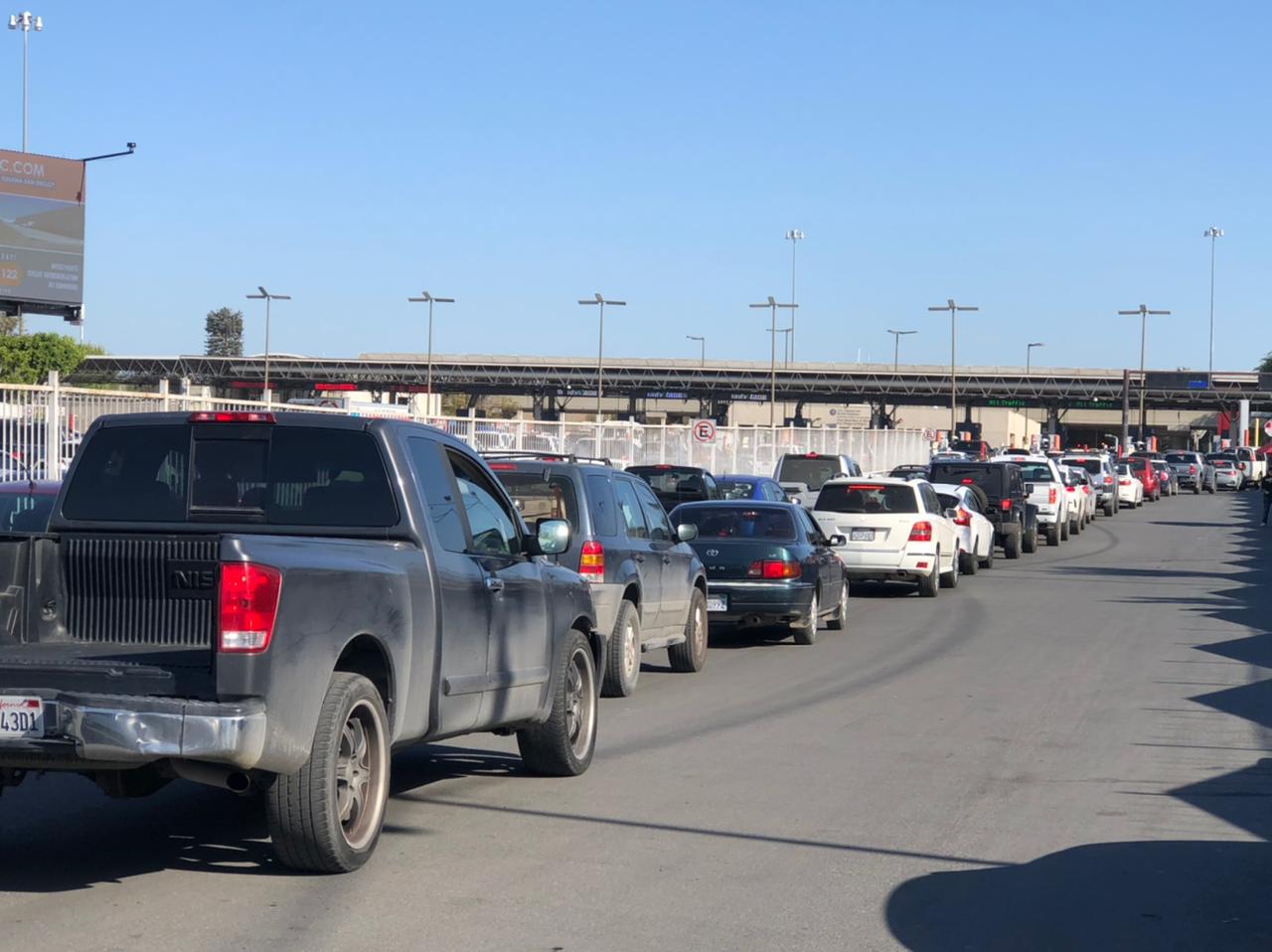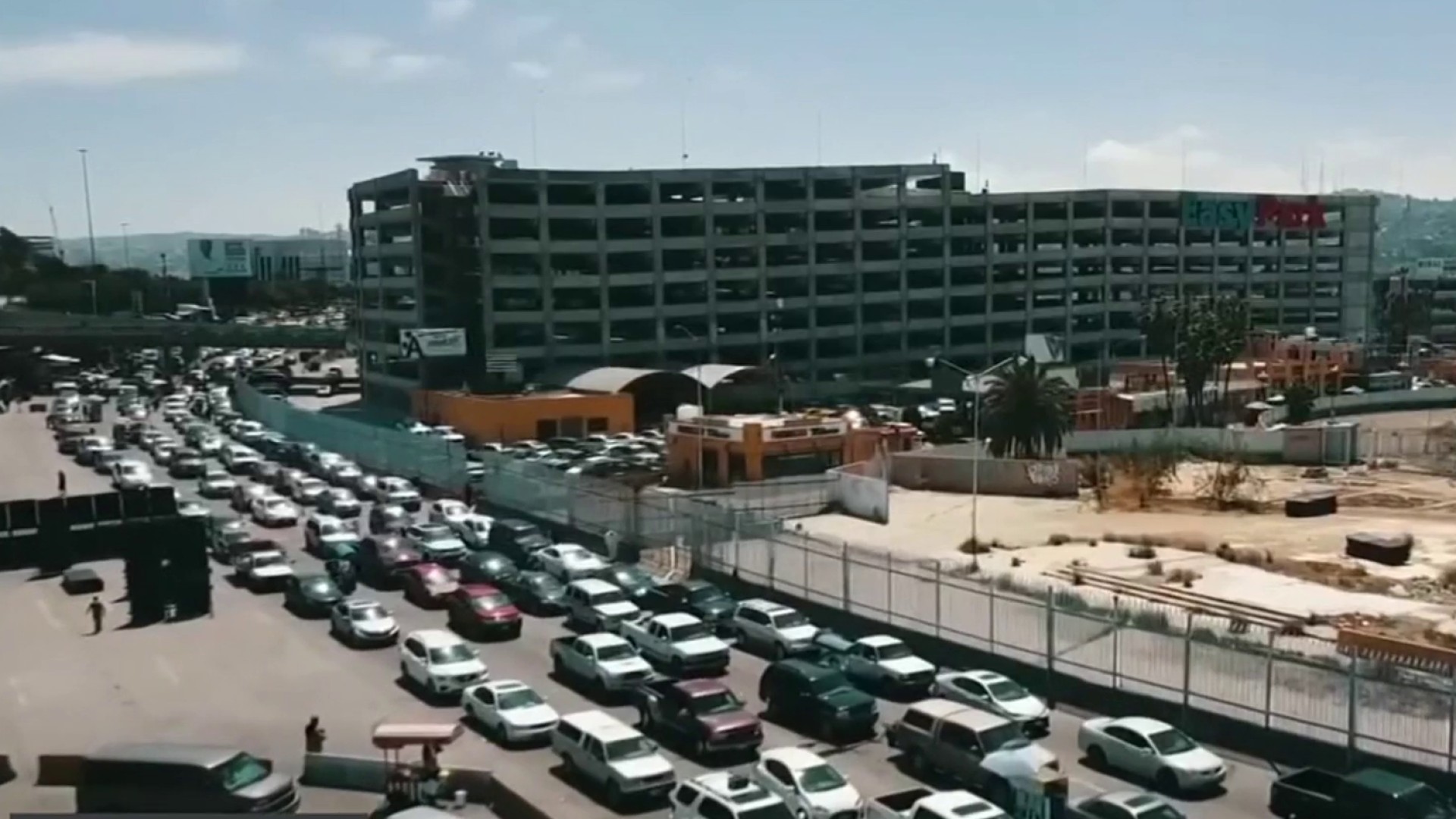San Diego County's proximity to the U.S.-Mexico border means that many businesses, families and local leaders are celebrating the federal government's decision to end restrictions to non-essential travel at U.S. land ports of entry.
"For far too long, the restrictions at our border separated families and devastated businesses that rely on cross-border commerce," San Diego Mayor Todd Gloria said Wednesday.
Travel across land borders from Canada and Mexico has been largely restricted to workers whose jobs are deemed essential. New rules will allow fully vaccinated foreign nationals to enter the U.S. regardless of the reason starting in early November, when a similar easing of restrictions is set for air travel. By mid-January, even essential travelers seeking to enter the U.S., such as truck drivers, will need to be fully vaccinated.
Get San Diego local news, weather forecasts, sports and lifestyle stories to your inbox. Sign up for NBC San Diego newsletters.
Mexico, Canada and elected officials from U.S. border regions have pressured the Biden administration for months to ease restrictions.
The San Ysidro Port of Entry south of San Diego is one of the United States' busiest land border crossings and border-adjacent businesses rely heavily on the cross-border traffic to survive — and many didn't make it through the pandemic.
For those that did, the border reopening was the hope they needed.
"I'm curious to see how we're going to handle this, but in the long run, I think it’s something we’re all waiting for, this, so let's do it,” said Cesar Michel, owner of Cali Taxes & Immigration Services in San Ysidro. "If you made it this long, you got it. Yeah, the rough part is over, hopefully."
Gloria said the economic impact was hard to quantify but can be seen in the sparse presence of shoppers at a high-end outlet mall on the city’s border with Tijuana, Mexico. The decision comes at a critical time ahead of the holiday shopping season.
Sign up for our Breaking news newsletter to get the most urgent news stories in your inbox.
San Diego's mayor added that the restrictions also greatly impacted San Diego families who live binationally, preventing family gatherings when relatives live on different sides of the border. Community events have stalled even as cities away from U.S. borders have inched toward normalcy.
Michel felt the impact of the border closing both professionally and personally. His mother, who lives in Mexicali with a tourist visa and is going through the U.S. immigration process, hadn't been able to enter the country in over a year. A special process allowed her to fly into LAX for a special event.
"It was the best surprise, having grandma at the baptism, so a lot of people crying, and it was awesome," Michel said.
For those who live south of the border and commute to San Diego, the reopening is long-awaited.
"Finally," were Dariana Trinidad's sentiments. She commutes to the U.S. for work and medical visits, and has experienced long wait times when she can cross. "They keep saying that they are going to open it and kept postponing it."
The much-anticipated federal announcement comes on the heels of Gloria's trip two weeks ago to Washington, D.C., where he met with federal officials, including White House staff and the U.S. Customs and Border Protection commissioner, to advocate for an end to the travel restrictions, imposed due to the coronavirus pandemic.
Fully vaccinated U.S. citizens and permanent residents have been allowed into Canada since August, provided they have waited at least two weeks since getting their second vaccine dose and can show proof of a recent negative COVID-19 test. Mexico has not enforced COVID-19 entry procedures for land travelers.
The latest move follows last month’s announcement that the U.S. will end country-based travel bans for air travel and instead require vaccination for foreign nationals seeking to enter by plane.
The new rules only apply to legal entry. Those who enter illegally will still be subject to expulsion under a public health authority that allows for the swift removal of migrants before they can seek asylum.
More Border Stories
Travelers entering the U.S. by vehicle, rail and ferry will be asked about their vaccination status as part of the standard U.S. Customs and Border Protection inspection. At officers' discretion, travelers will have their proof of vaccination verified in a secondary screening process.
Unlike air travel, for which proof of a negative COVID-19 test is required before boarding a flight to enter the U.S., no testing will be required to enter the U.S. by land or sea, provided the travelers meet the vaccination requirement.
According to the Centers for Disease Control and Prevention, the U.S. will accept travelers who have been fully vaccinated with any of the vaccines approved for emergency use by the World Health Organization, not just those in use in the U.S. That means that the AstraZeneca vaccine, widely used in Canada, will be accepted.
Officials said the CDC was still working to formalize procedures for admitting those who received doses of two different vaccines, as was fairly common in Canada.
U.S. Homeland Security Secretary Alejandro Mayorkas said he was “pleased to be taking steps to resume regular travel in a safe and sustainable manner” and lauded the economic benefits of it.
Cross-border traffic has plummeted since the pandemic, according to U.S. Department of Transportation figures.
The move toward restoring regular travel comes as COVID-19 cases in the U.S. have dropped to about 85,000 per day, the lowest level since July, following a spike from the more transmissible delta variant of the virus. Per capita case rates in Canada and Mexico have been markedly lower in the two countries than the U.S. for the duration of the pandemic, which amplified frustrations about the U.S. restrictions on travel.
Sign up for our Breaking news newsletter to get the most urgent news stories in your inbox.



